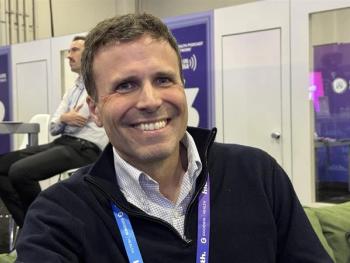
Kids and COVID-19: NIH begins study of long-term effects of the virus
Federal researchers will examine kids who have been infected and track their health for three years. Anthony Fauci said it’s critical to learn how children will be affected by the virus in years to come.
Federal researchers have launched a study examining the long-term effects of COVID-19 on children.
The study has enrolled its first participant at the National Institutes of Health’s Clinical Center in Bethesda, Md., the agency announced this week. The National Institute of Allergy and Infectious Diseases, part of NIH, is going to study 1,000 kids and young adults who have had COVID-19 and track their health for three years.
The study will examine the physical and mental health of the young people, gauging their response to the infection and observing any long-term effects.
About 6 million pediatric cases of COVID-19 have been reported, and generally, children who have been infected have had relatively mild symptoms. However, the NIH said in the news release announcing the study, “Many children have experienced significant acute and long-term effects of the disease.”
Anthony S. Fauci, the head of NIAID and the federal government’s top expert on infectious diseases, said the study will shed light on the long-term effects of the virus on children.
“Although we know that children are vulnerable to COVID-19, we still do not have a clear picture of how COVID-19 affects them in the long term,” Fauci said in a statement. “In adult patients, the long-term sequelae of COVID, including post-acute COVID-19, can significantly affect quality of life. Our investigations into the pediatric population will deepen our understanding of the public health impact that the pandemic has had and will continue to have in the months and years to come.”
Earlier this month, the federal government authorized use of the COVID-19 vaccine for children ages 5-11, enabling 28 million kids to be vaccinated. At this time, children under 5 can’t receive the vaccine. Since so many children are only now gaining access to the vaccine, many kids are vulnerable to infection.
In the first week after the shots were approved for kids 5-11, the White House said about 900,000 children had received their first shots and another 700,000 had appointments to get their initial shot,
Kids who have been infected can also suffer Multisystem Inflammatory Syndrome in Children, also known as MIS-C. It can lead to serious illness and hospitalization. Some children have developed MIS-C even if they didn’t show typical symptoms of COVID-19.
The study will look at young people ages 3-21 and parents or guardians must give consent for their children to participate. Researchers will look at the long-term immune response to the virus and examine if there are any genetic factors at play that may affect how kids respond to infection, the NIH said.
Researchers will screen the participants’ hearts and other vital organs and will also collect a host of baseline samples, including blood and urine.
Family members who have not had COVID-19 may also be asked to participate as a control cohort, so the study could ultimately include up to 2,000 people.






































